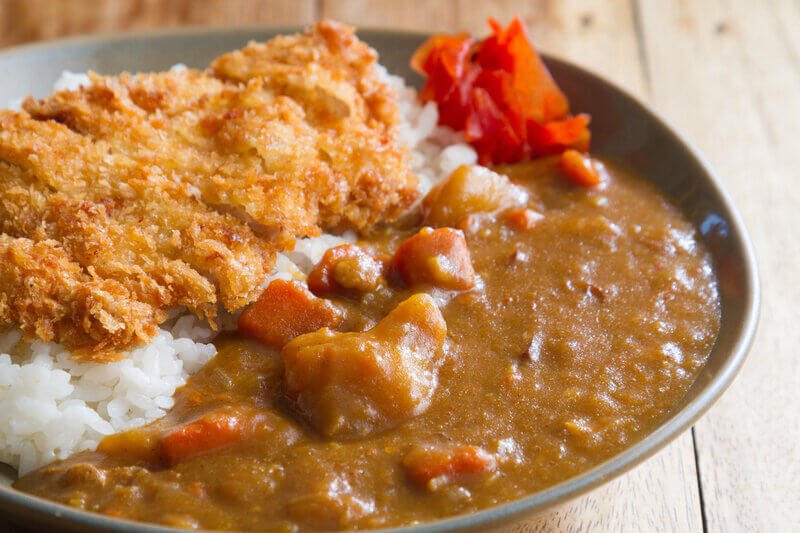If you are craving a Japanese curry but you aren’t able to consume milk, you might be wondering if this is a meal that has to be struck off your menu. Sometimes it’s difficult to tell whether a dish contains milk, which might confuse you about Japanese curry.
Japanese curry does not generally contain milk, but occasionally, recipes suggest adding this as a secret ingredient to bump up the creaminess. Typically, they depend upon a flavorful roux for their taste and texture.
In this article, we’ll explore whether Japanese curries are milk-free and dairy-free, and we’ll also cover what you might want to include in one.
Is There Milk In Japanese Curry?
It’s pretty uncommon for a Japanese curry to include milk, as these curries are usually made with a rich roux, according to Delish.
Dairy is generally less common in Japanese dishes than in Western dishes, as CrossCurrents explains. If you’re preparing a traditional Japanese meal, it’s unlikely to call for milk.
If you ask for a Japanese curry in a restaurant, it’s worth confirming that the restaurant hasn’t added milk to the curry.
Although this is relatively rare, it isn’t unheard of, so it’s a good idea to make sure before you eat it.
Here's a video from Bon Appetit that shows how to make Japanese curry (notice the absence of milk!).
Is Japanese Curry Free From Dairy?
Many Japanese curries utilize butter in making the roux.
However, making a roux with non-animal fats, such as oil or vegetable-based butter, is possible.
Many recipes do call for butter, but this isn’t a requirement, and you can create a delicious roux without if you choose to.
You aren’t likely to see other dairy products, like cream, although you might find some outlier recipes that require it.
Again, because dairy was not enormously common in Japan, it isn’t a traditional part of the flavor, and it might be best to avoid it.
Related: Is There Milk in Egg Rolls?
Should You Use Coconut Milk In A Japanese Curry?
Coconut milk is commonly used in Thai curries and sometimes in Indian curries.
However, it isn’t the right flavor for Japanese curry, and it’s better to omit it. These curries don’t depend upon milk – dairy or plant-based – for their taste and texture.
If you want to add milk, consider rice milk, which may go well with the curry if you serve it on a rice bed.

Related: Does Soup Contain Milk?
Conclusion
Japanese curries tend to be free from dairy, but it does depend on the recipe, as an increasing number call for milk and butter.
If you want to eat a Japanese curry at a restaurant and need a milk-free meal, check with the chef before placing an order.
